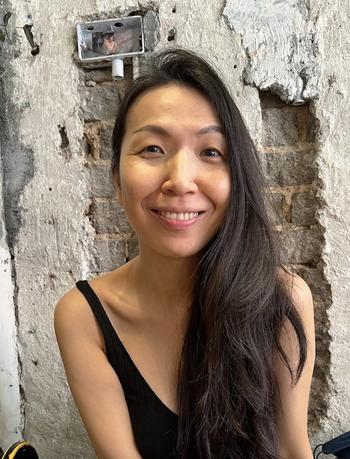Dr. Jamie Wang

Fellow in the project "Epochal Lifeworlds: Narratives of Crisis and Change"
Short Biography
Jamie Wang is an Environmental Humanities researcher, writer and poet. She is a Research Assistant Professor in the Department of Literature and Cultural Studies at the Education University of Hong Kong. Jamie’s current research and writing are at the intersections of environmental humanities, cultural studies, urban geography and more-than-human studies in the context of urban imaginary, climate change and environmental injustice. Her book project ‘Reimagining the more-than-human City’ (under contract with the MIT Press) explores the making of the urban environment from a more-than-human perspective – from green spaces and housing development projects, to transportation, water infrastructure, and urban agriculture, with a geographical focus on Singapore. For more information, please visit https://jamiewang.org/.
Project
Cities of Many worlds—Narratives of futuresWe are living in a period characterised by escalating effects of climate change, intense urbanisation and environmental degradation. Amidst these growing uncertainties, there is a growing desire to build eco-futuristic and sustainable urban environments through technological advances. From the mushrooming of eco-cities, smart cities to the circulation of high-tech urban solutions, the kind of sustainable narratives dominated (and fuelled) by technocratic and capital-intensive approaches without sacrificing economic development has been visualised as the way to move forward.
This new project seeks to respond directly to these challenging contexts, exploring the way in which a broader interdisciplinary Environmental Humanities approach may offer new, better insights into the complex human-environment-urban relations. The project seeks to draw material, cultural and technological narratives into conversations as a way to understand, and to expand the perceptions of worlds and world-making practices. Specifically, the project will examine diverse material-semiotic imaginings of the urban worlds that emerges from, and/or responds to epochal catastrophes. How might these narratives intra-act and co-shape the futures of cities? What kind of possibilities of world-making might open up if we foreground a more-than-human perspective to rethink the shared responsibilities and futures in a climate-changed world?
